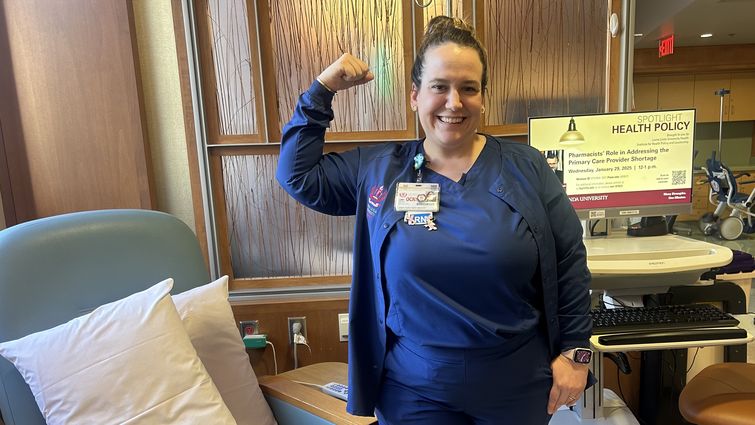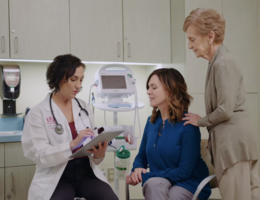

Starting chemotherapy can be a daunting experience, but understanding what to expect can help ease anxiety and make the process smoother. Denise Lang, BSN, RN, OCN, VA-BC, GERO-BC, a charge nurse at Loma Linda University Health Cancer Center, shares insights into the first day of treatment and tips for a comfortable experience.
The first day: A step-by-step walkthrough
Before your first treatment, several steps are completed behind the scenes to prepare for your infusion. Insurance authorization is obtained, and patients may undergo scans or diagnostic tests such as echocardiograms. Additionally, lab work is performed 1-2 days before the scheduled treatment to ensure everything is within range to begin chemotherapy.
“We understand that starting chemotherapy can feel overwhelming,” Lang said. “That’s why our team works hard behind the scenes to ensure everything is in place before you even arrive. We take care of the logistics so patients can focus on their health."
On the day of treatment:
- Check-In: After checking in, a nurse will take your vital signs.
- Orientation: An infusion RN will escort you to your chair and familiarize you with the Infusion Suite.
- Education: A pharmacist will either call you beforehand or provide chair-side education about your treatment.
- Premedications: These are administered to help prevent common side effects. A waiting period of about 30 minutes follows.
- Infusion: Once premedications take effect, chemotherapy or immunotherapy begins. Some treatments may include an observation period where the RN stays chair-side to monitor you.
- Discharge: After the infusion is complete, you are free to go home.
Throughout the process, staff members are available to answer any questions and provide support.
Bringing a companion
Patients are welcome to bring one adult companion to the Infusion Suite. To protect immunocompromised patients, children under 18 are not permitted in the Cancer Center.
Items to Bring
The Infusion Suite is equipped with reclining chairs, warm blankets, pillows, and TVs. However, patients are encouraged to bring items that make them comfortable, such as:
- A personal blanket or pillow.
- Comfortable clothing (wide-neck shirts for port access or sleeves that can be rolled up for IV access).
- Food or snacks, especially for longer treatments.
“You are welcome and encouraged to bring food. We don’t want you to be hungry because sometimes treatment can last a few hours,” Lang said.
If you have questions about what to bring or limitations, the Cancer Center staff can provide guidance.
Managing side effects
During infusion, staff closely monitor for immediate reactions such as hives, itching, coughing, shortness of breath, or upset stomach. For treatments with a higher likelihood of reactions, an RN will stay chair-side.
"The first 30 minutes of infusion are critical, and we monitor patients closely for any immediate reactions,” Lang said. “Our team is well-prepared to handle side effects quickly to keep patients safe and comfortable."
Common side effects depend on the type of treatment:
- Chemotherapy: Nausea, fatigue, loss of appetite, fever, mouth sores, numbness or tingling, and changes in bowel movements.
- Immunotherapy: Rash, headache, or diarrhea.
Premedications, such as Zofran, are given to prevent side effects like nausea. Patients also receive medications to take home as needed. If you experience any side effects, notify your healthcare provider.
When to contact your healthcare team
Chemotherapy affects both cancer and healthy cells, including those in the bone marrow. This can lead to:
- Low White Blood Cells: Increased infection risk. Seek immediate care if you have a fever over 100.4°F.
- Low Red Blood Cells: Symptoms include fatigue and shortness of breath. A blood transfusion may be required.
- Low Platelets: Watch for unusual bruising, bleeding gums, or bloody noses.
Regular blood work helps monitor these changes. Patients should report any concerns or symptoms to their treating physician promptly.
Chemotherapy can feel overwhelming, but the compassionate team at Loma Linda University Health Cancer Center is here to support you every step of the way. Don’t hesitate to ask questions and rely on your care team to guide you through this journey.
Contact the Cancer Center at 800-782-2623.


